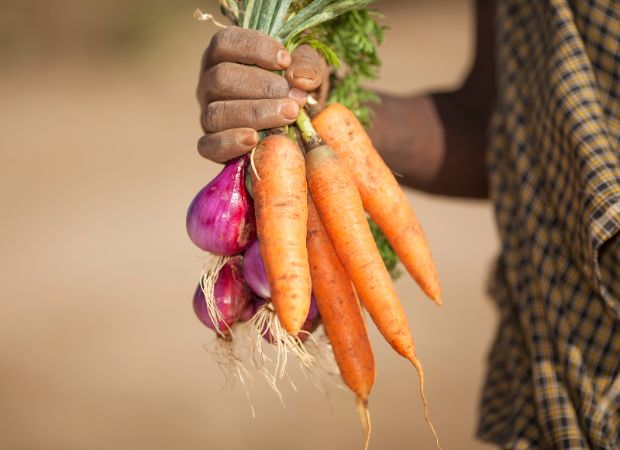In today’s world, the food choices we make have a significant impact on our environment. From production to consumption, each step along the way can either contribute to sustainability or burden our planet.
One powerful way to make a positive impact is by choosing seasonal ingredients. Not only do they offer the freshest flavours, but they also bring about a host of environmental benefits that resonate far beyond the kitchen.
Reduced carbon footprint
Transporting food over long distances adds to carbon emissions, which plays a major role in climate change. However, opting for local, in-season ingredients significantly cuts down on their travel distance. This results in fewer transportation emissions, thereby reducing the carbon footprint associated with your meal.
By sourcing produce from nearby farms during their respective seasons, we can support local agriculture while also minimising the environmental impact of shipping and storage, resulting in a more eco-friendly and sustainable supply chain.
Preservation of biodiversity
Choosing seasonal ingredients fosters biodiversity. By focusing on what nature naturally provides throughout different times of the year, we promote diversity in crop production. This diversity is crucial for maintaining healthy ecosystems and preserving plant varieties that might otherwise be overshadowed by mass-produced, out-of-season alternatives.
Conservation of resources
Seasonal produce typically requires fewer resources to grow. By aligning with nature’s rhythm, these crops are naturally adapted to local climates and conditions. This means they often need less human intervention in terms of artificial irrigation, fertilisers or pesticides, reducing the strain on water resources and curbing the use of potentially harmful chemicals.
Moreover, when foods are in season, they tend to be more abundant and thrive without excessive human intervention. This abundance can lead to less food waste as there’s less likelihood of surplus produce going unused or being discarded
Supporting sustainable farming practices
Favouring seasonal ingredients also supports farmers adhering to sustainable agricultural practices. These farmers focus on crop rotation, natural fertilisers and integrated pest management processes, thereby maintaining soil health and reducing reliance on synthetic chemicals. By choosing seasonal produce, we indirectly encourage and promote these eco-friendly farming techniques, contributing to the long-term health of agricultural land.
Encouraging a mindful approach
Embracing seasonal ingredients encourages a more conscious approach to food. It reconnects us with the natural cycles of the earth and fosters an appreciation for the diverse flavours each season offers. This mindful approach to eating cultivates a deeper understanding of the interconnectedness between consumption and the environment.
ALSO READ: What is mindful eating?
4 tips for supporting seasonal produce
- Become familiar with the seasons. Understand what grows when; local farmer’s markets or online resources in your area provide valuable information.
- Visit farmer’s markets and local farms. These hubs offer fresh seasonal produce and support local farmers while reducing transportation emissions.
- Embrace imperfections. Seasonal produce might not look as flawless as out-of-season items that have been treated to withstand travel and storage. Embrace the imperfections – odd shapes, sizes or colours – knowing they’re a hallmark of freshness and natural growth.
- Ask questions. Don’t hesitate to ask farmers or grocers about their produce. They can provide insight into what’s in season and where it’s grown, and even offer cooking tips or recipes.
NOW READ: Your go-to guide for seasonal fruit and vegetables

